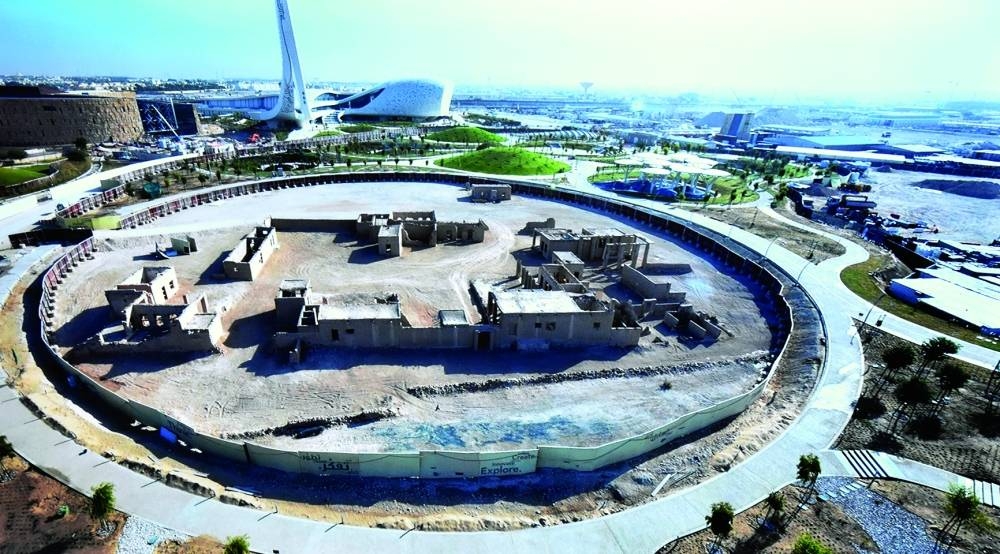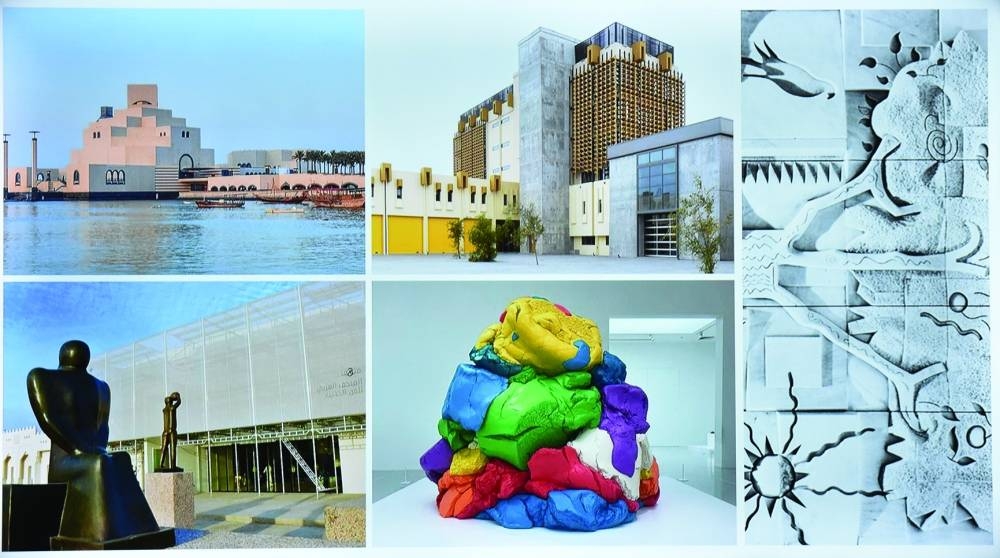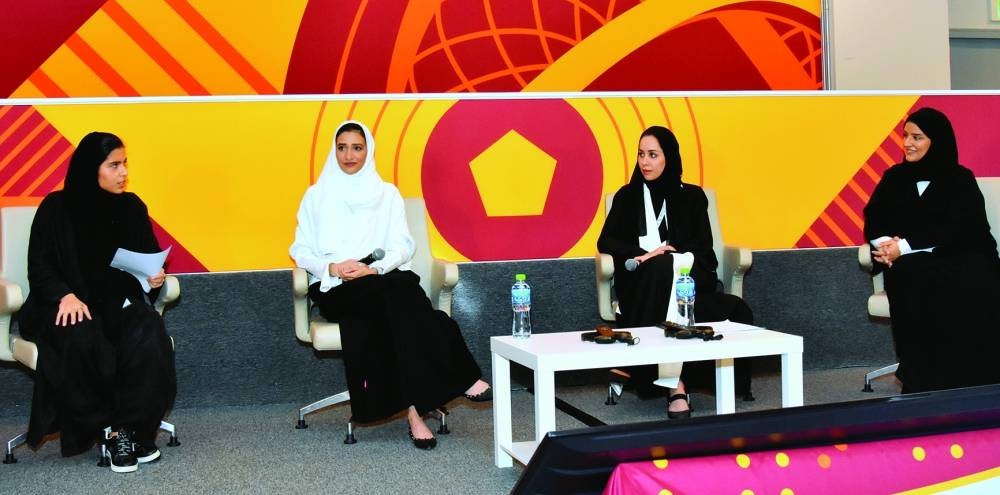pls turn inside
Exposure to Qatar’s arts and cultural landscape has led to the FIFA World Cup Qatar 2022 fans rethinking misconceptions and stereotypes about the nation and the Arab world, culture experts told an event organised yesterday by Qatar Foundation (QF) as the tournament nears its end.
A discussion at the Host Country Media Centre in Msheireb Downtown Doha heard how supporters from around the world have had their eyes opened to the cultural heritage of Qatar and the region over the past four weeks, through their experiences at landmarks such as Qatar’s museums and Qatar National Library (QNL) – bridging gaps in their understanding of the Middle East and the Arab world.
“There has been misunderstanding about our culture, and what has happened during the World Cup is that people have been given clearer insight and a clearer image about who we are, what we are doing, what our background is, and what our future goals and plans are,” Ameera al-Aji, community arts lead at QF, told the talk, 'Cultivating Arab Heritage and Culture During the First World Cup in the Region'.
“The World Cup has also created a warm and emotional link between the people of Qatar and people from around the world. It makes our hearts glad to, for example, see people from other countries trying on a thobe in Souq Waqif, or ladies trying henna.”
According to Hind al-Khulaifi, director of Strategy and Strategic Projects at QNL – which is based within QF’s Education City – the library has “welcomed the world” during the tournament, as she said: “The look in the eyes of fans as they come through our door is wonderful to see, as is the happiness they feel when we tell them we have the books they’re looking for.
“Not only have we been able to welcome the world, we have also been able to show people that we’re not so different, and we have more in common than they might think.”
Sheikha Reem al-Thani, acting deputy CEO of exhibitions and marketing and director of Centralised Museums, Qatar Museums, explained: “Our collections reflect the diversity of the Arab world and create visual connections that help to clear people’s minds of misconceptions and stereotypes – we are telling them things in our voice, and from our understanding and our reality.
“As cultural institutions, we are multicultural and have people speaking different languages, and it has been heartwarming to see people trying on our traditional clothes, experiencing our traditional food, and asking us things they maybe thought they couldn’t ask but that we are happy to answer.”
The discussion – which took place as the second edition of QF’s D’reesha Performing Arts Festival continues until December 17 at Oxygen Park and Al Khater House at Education City – also explored QNL’s role as a regional hub of expertise for the preservation and conservation of cultural heritage, and the role of the library, Qatar Museums, and QF in reviving and promoting the Arabic language.
Sheikha al-Thani also highlighted the importance of orally documenting Qatar’s history and preserving its heritage sites, such as Al Khater House within Education City, for which plans are in place to make it a center for cultural exchange with QNL collating its oral history by working with the Al Khater family.
“Documentation of our heritage is not always available, and we have to capture it,” she said. “We are documenting oral history from different families and different people throughout the country, and we are very keen to ensure it’s preserved.
“In Qatar, we have thousands of heritage sites – from wells to forts to some that are still underground and being excavated – and we are working to preserve these locations and fully document their history, so the generations to come can understand for themselves why we are who we are and how we lived our lives, rather than simply learning this from stories that are passed down.
“With our heritage sites, there is so much happening out there across Qatar – it’s not just about Doha or Al Wakra. All around the country, there are places where people lived, and we have to ensure we document that history.”

An aerial view of Al Khater House within Education City, for which plans are in place to make it a centre for cultural exchange with QNL collating its oral history by working with the Al Khater family.

Some of Qatar's landmarks and attractions - a slide displayed at the discussion Tuesday.

The panellists during the discussion Tuesday. PICTURE: Thajudheen.
